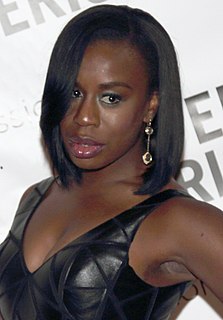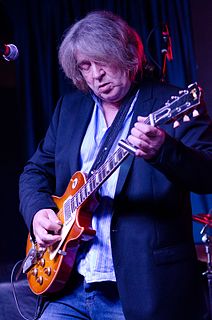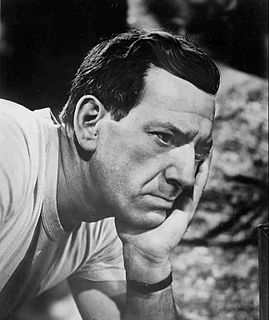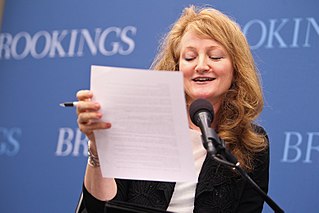A Quote by Uzo Aduba
Onstage, even though you're here together with the other actor, face-to-face, playing out the scene, you also have that other ear pointed out toward the audience and how they're listening. That informs a lot.
Related Quotes
When I started out as an actor, I thought, Here's what I have to say; how shall I say it? I began to understand that what I do in the scene is not as important as what happens between me and the other person. And listening is what lets it happen. It's almost always the other person who causes you to say what you say next. You don't have to figure out how you'll say it. You have to listen so simply, so innocently, that the other person brings about a change in you that makes you say it and informs the way you say it.
My brother was listening to his transistor radio. He kept switching the earpiece from one ear to the other, which I thought was his idea of a joke. 'You can't do that,' I said. 'You can only hear out of one ear.' 'No, I can hear out of both,' he answered. And that was how I discovered I was deaf in my right ear.
I've never been very comfortable as an actor looking out into the audience; I always like to keep my focus on the other person. When you start playing out to the audience, it takes me out of it, because people don't do that when you're in life behaving with another person - you don't often look out, around you, in a presentational manner.
What I enjoy most with acting is when it's a good scene with one or two other actors, and you feel a strong connection, and you don't know how you're going to respond, and everybody is listening to each other and getting affected by each other, and even though you've rehearsed it many times, it feels like it's happening right now.
What I enjoy most with acting is when it's a good scene with one or two other actors, and you feel a strong connection and you don't know how you're going to respond, and everybody is listening to each other and getting affected by each other, and even though you've rehearsed it many times, it feels like it's happening right now.
The only tool we have as artists is selectivity. If you're a painter, you select the color, the lines, how severe they should be. As an actor you develop how angry you should be. You select how angry you should be. You listen to the other actor and then you react. In film, sometimes the other actor isn't even there. You have to play the scene. What I do is I call on my experience on the stage. I play the scene and I hope that I reach a certain level of integrity because that's what I learned on the stage.
The hardest part of playing the villain was the prosthetics, because I couldn't really move my face as much as I wanted to, and yet I had to move my face a lot. If I moved my face in certain ways the prosthetics would come apart, so I could do a lot of eyebrow acting, but I couldn't do a lot of nose lifting, or the corners of the nose would pop out.
Snowden and NSA leaders should be brought together face-to-face for questioning in public by a congressional investigatory committee, with both parties allowed to make their points and to counter the assertions of the other. If Snowden is lying, it will come out. If the NSA is lying, it will come out.
When we haven't the time to listen to each other's stories we seek out experts to tell us how to live. The less time we spend together at the kitchen table, the more how-to books appear in the stores and on our bookshelves. But reading such books is a very different thing than listening to someone' s lived experience. Because we have stopped listening to each other we may even have forgotten how to listen, stopped learning how to recognize meaning and fill ourselves from the ordinary events of our lives. We have become solitary; readers and watchers rather than sharers and participants.


































